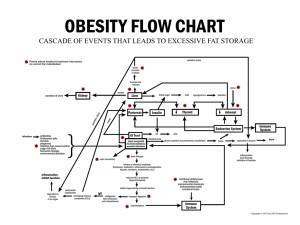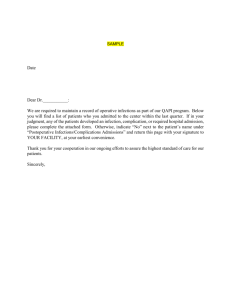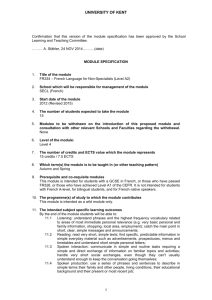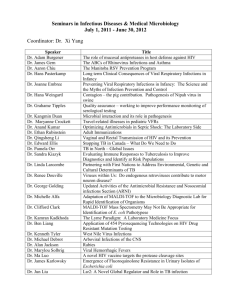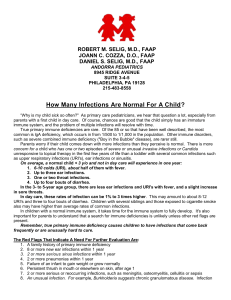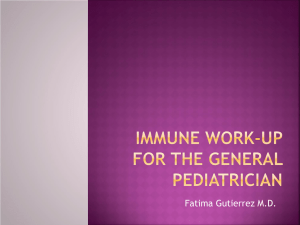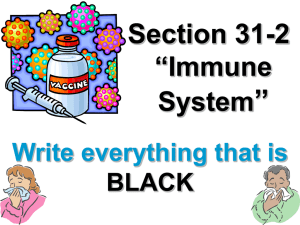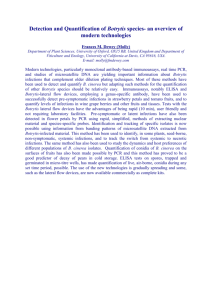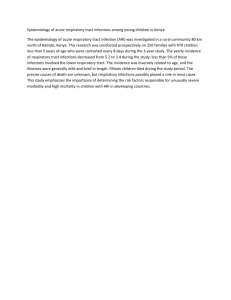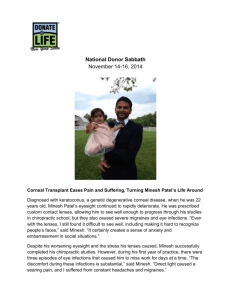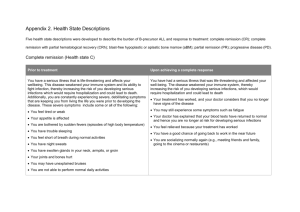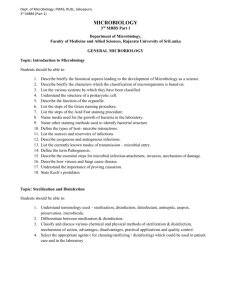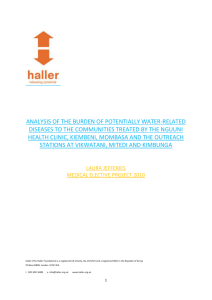section 1: module specifications
advertisement
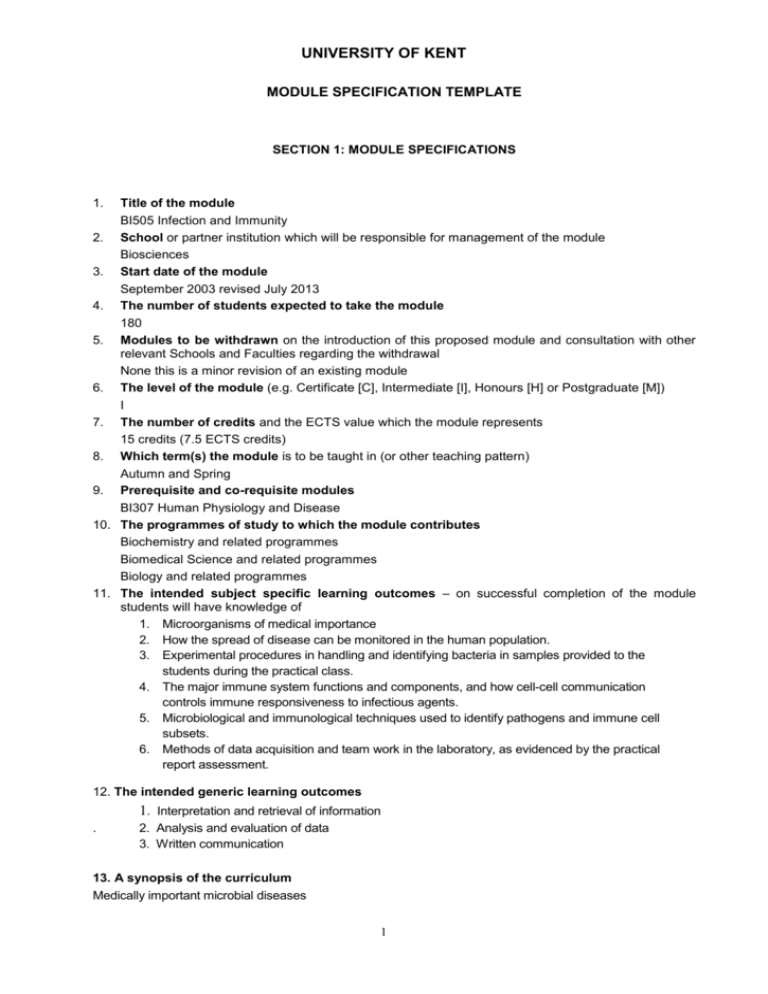
UNIVERSITY OF KENT MODULE SPECIFICATION TEMPLATE SECTION 1: MODULE SPECIFICATIONS 1. Title of the module BI505 Infection and Immunity 2. School or partner institution which will be responsible for management of the module Biosciences 3. Start date of the module September 2003 revised July 2013 4. The number of students expected to take the module 180 5. Modules to be withdrawn on the introduction of this proposed module and consultation with other relevant Schools and Faculties regarding the withdrawal None this is a minor revision of an existing module 6. The level of the module (e.g. Certificate [C], Intermediate [I], Honours [H] or Postgraduate [M]) I 7. The number of credits and the ECTS value which the module represents 15 credits (7.5 ECTS credits) 8. Which term(s) the module is to be taught in (or other teaching pattern) Autumn and Spring 9. Prerequisite and co-requisite modules BI307 Human Physiology and Disease 10. The programmes of study to which the module contributes Biochemistry and related programmes Biomedical Science and related programmes Biology and related programmes 11. The intended subject specific learning outcomes – on successful completion of the module students will have knowledge of 1. Microorganisms of medical importance 2. How the spread of disease can be monitored in the human population. 3. Experimental procedures in handling and identifying bacteria in samples provided to the students during the practical class. 4. The major immune system functions and components, and how cell-cell communication controls immune responsiveness to infectious agents. 5. Microbiological and immunological techniques used to identify pathogens and immune cell subsets. 6. Methods of data acquisition and team work in the laboratory, as evidenced by the practical report assessment. 12. The intended generic learning outcomes 1. Interpretation and retrieval of information . 2. Analysis and evaluation of data 3. Written communication 13. A synopsis of the curriculum Medically important microbial diseases 1 UNIVERSITY OF KENT Gastrointestinal infections, Upper respiratory tract infections, Genital infections Lower respiratory tract infections, CNS infections, Infections of the skin, Urinary tract infections, Ear and eye infections, Parasitic infections, Mycoses Immunological Topics Introduction to the basic concepts of innate and adaptive immunity to pathogens. Immune defence mechanisms against bacterial, viral and parasitic infections. Antibody classes, antigen processing, complement, cytotoxic cells, interferons, the generation of antibody diversity. Cell communication, and the regulation of immunity by T cell . Immunopathology, including autoimmunity, allergy and transplant rejection. 14 Indicative Reading List Mims CA, Goering R, Mims' medical microbiology, 4th Edition, Mosby, 2007 Murphy, K., Janeway’s Immunobiology, 8th Edition, Garland Science, 2012. Kindt TJ, Goldsby RA, Kuby Immunology, 6th Edition, W.H. Freeman, 2007 15.Learning and Teaching Methods, including the nature and number of contact hours and the total study hours which will be expected of students, and how these relate to achievement of the intended module learning outcomes The material will be delivered through a series of lectures, learning and understanding will be supported through practical work focused on medical microbiology and a supervision focussed on immunology. The lecture series will address subject specific learning outcomes 11.1,11.2,11.4 and 11.5. The practical involves visual and biochemical identification of organisms and cultures, the interpretation of antibiograms, and the answering of questions leading from this work. It also includes 2 case studies which need to be analysed based on the information given during the practical. (The practical addresses Subject-specific learning outcomes 11.1 – 11.3, 11.5 and 11.6 and generic learning outcomes 12.1 and 12 2) The supervision will focus on aspects of immunology. There will be a set of questions and by Answering the questions, students will gain insight into the structures on immune cells, and cell inter-relationships within the immune system. (This will address subject-specific learning outcomes 11and 11.5. and generic learning outcomes 12.1 and 12.3) Contact time: 28 hours Lectures Supervisions Practical class Self Study Supervision Practical report Reading and exam preparation 23 hrs 1 hrs 4 hrs (includes pre-lab lecture) 30 h 24 h 68 h 16.Assessment methods and how these relate to testing achievement of the intended module learning outcomes 1. Practical (20%) (Subject-specific learning outcomes11.1 – 11.3, 11.5, 11.6, Generic outcomes12.1 -3) 2. Supervision (25%) (Subject-specific learning outcomes 11.1, 11. 2, 11.4, 11.5, Generic outcomes 12.1, 12.3) 3. End of module examination 55% (Subject-specific learning outcomes 11.1, 11. 2, 11.4, 11.5 Generic outcomes 12.3). 2 UNIVERSITY OF KENT 17.Implications for learning resources, including staff, library, IT and space None this is a revision of an existing module 18. The School recognises and has embedded the expectations of current disability equality legislation, and supports students with a declared disability or special educational need in its teaching. Within this module we will make reasonable adjustments wherever necessary, including additional or substitute materials, teaching modes or assessment methods for students who have declared and discussed their learning support needs. Arrangements for students with declared disabilities will be made on an individual basis, in consultation with the University’s disability/dyslexia support service, and specialist support will be provided where needed. 19. Campus(es) where module will be delivered: Canterbury SECTION 2: MODULE IS PART OF A PROGRAMME OF STUDY IN A UNIVERSITY SCHOOL Statement by the School Director of Learning and Teaching/School Director of Graduate Studies (as appropriate): "I confirm I have been consulted on the above module proposal and have given advice on the correct procedures and required content of module proposals" ................................................................ .............................................. Director of Learning and Teaching/Director of Graduate Studies (delete as applicable) Date ………………………………………………… Print Name Statement by the Head of School: "I confirm that the School has approved the introduction of the module and, where the module is proposed by School staff, will be responsible for its resourcing" ................................................................. .............................................. Head of School Date ……………………………………………………. Print Name Module Specification Template Last updated February 2013 3
